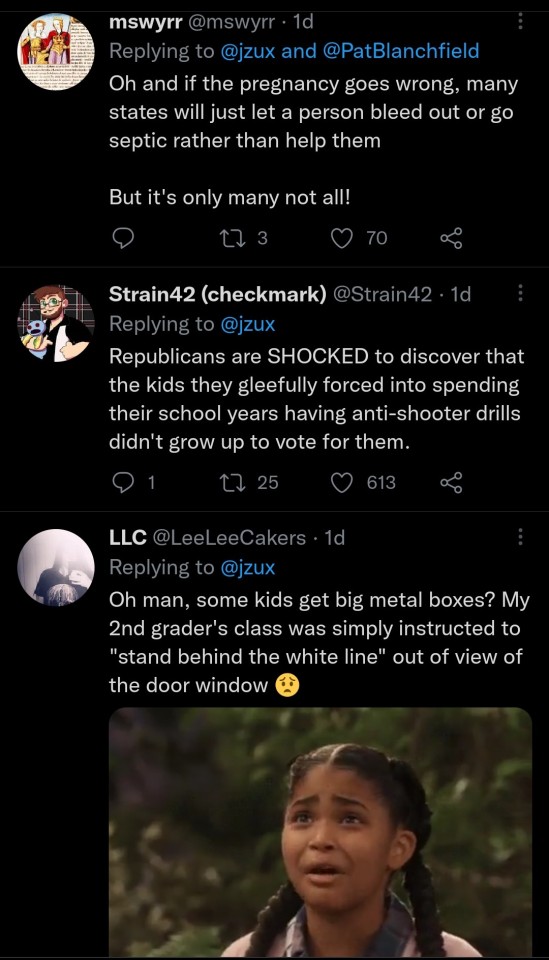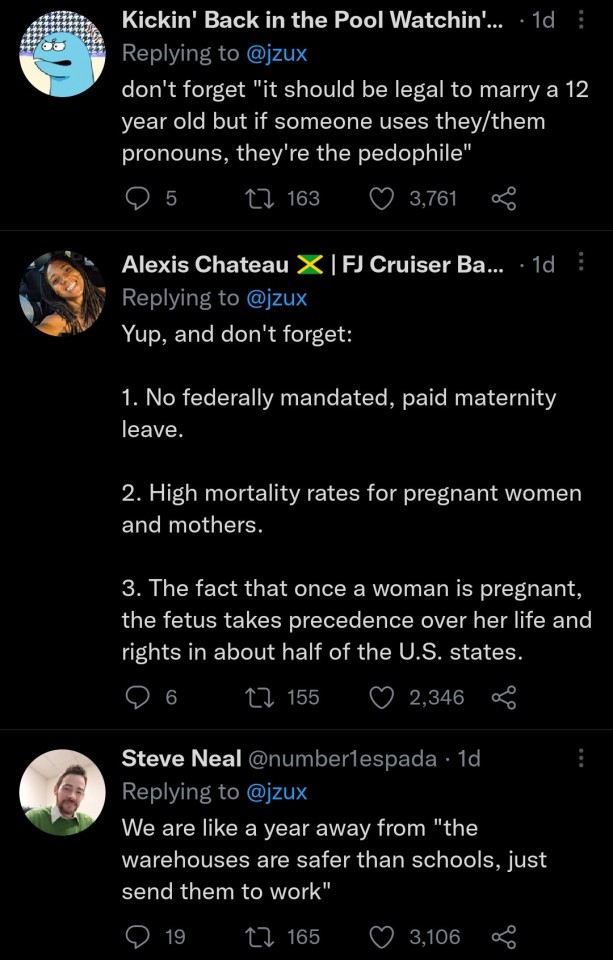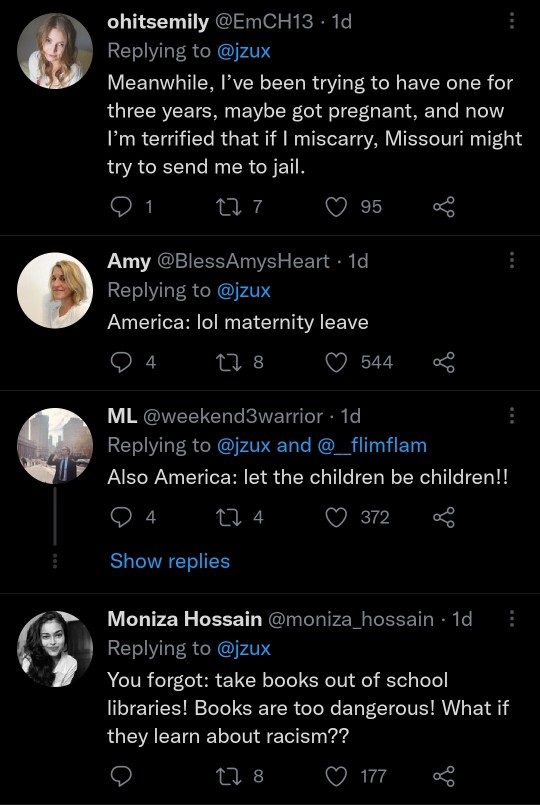I'm just a 28 year old woman navigating through life with a cup of coffee
Don't wanna be here? Send us removal request.
Text
Haiku (05/30/2025)
Heavy rain pouring
hard on the concrete sidewalk.
Snail under a leaf.
0 notes
Text
Haiku (05/25/2025)
Little mourning dove
Sitting on the bright green grass.
Ah-choo, ugh....pollen.
3 notes
·
View notes
Text
"Eating In Peace" 05/20/2024
Lush spring greenery-
A squirrel hides from onlookers
To chow down in peace.
0 notes
Text
you guys really like arguing about who between minato "im going to put a nuke in my son and then kill myself because i cant live without my wife" namikaze and fugaku "my son..oh wait i have two...exists as an extension of myself and any form of attention let alone care is entirely conditional on their usefulness to my political aspirations" uchiha is the secret better father
you forgot the secret third choice: might "i will teach my son optimism and encourage him in everything he does because i love him so much and he makes me so happy and proud" dai
31 notes
·
View notes
Text
This looks amazing!
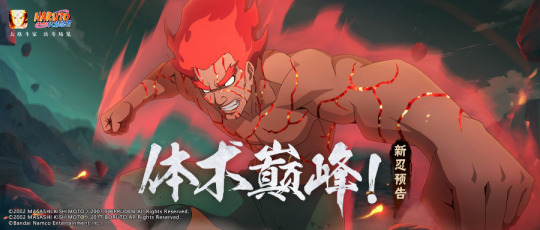
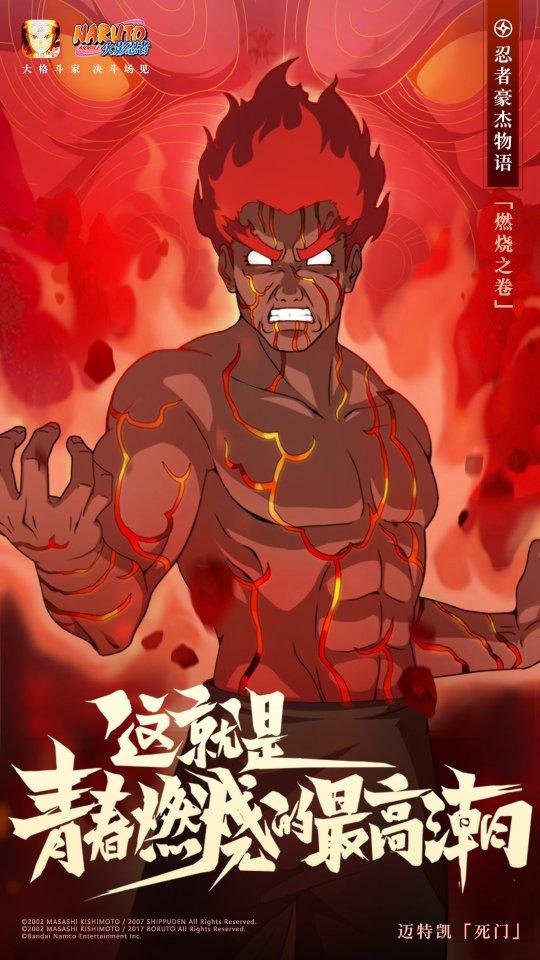
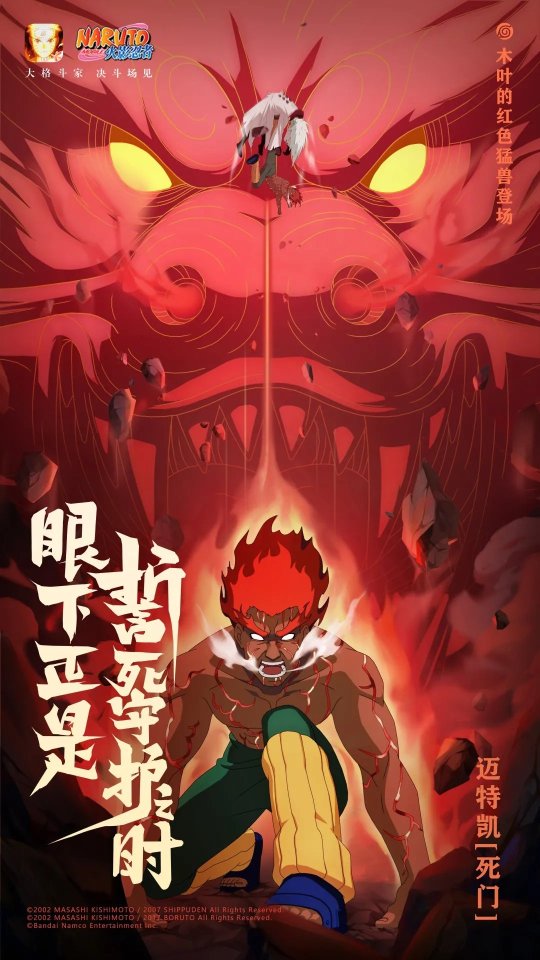


Official illustrations – Might Guy (Eight Gates Released Formation) for the video game Naruto Mobile. 🐉🔥
533 notes
·
View notes
Text
Disorganized (aka fearful-avoidant) attachment style is overanalyzing/overcorrecting when you think your partner might be pulling away from you, but then pulling away from them when they draw close to you.
It is both craving AND fearing intimacy so deeply that you grip people tight in your hands lest they leave you, but keep them at an arms length lest they love you.
4K notes
·
View notes
Text
A show that looks as cute as Kotaro Lives Alone has absolutely no right to be as heart wrenching as it is. I actually teared up at episode 3, Jesus Christ.
3 notes
·
View notes
Text
For the record, Farah is literally the prettiest but she needs to start owning that instead of sucking up to others all the time. Like, she is actually insanely pretty.
21 notes
·
View notes
Text
“The bullying will go away if you just handle it with enough grace and kindness” is a disgusting lie that could only ever be perpetuated by someone who has never been bullied before. Anyone who has ever experienced real bullying knows that bullied respond to one thing and one thing only; consequences.
3K notes
·
View notes
Text
Farah deserved better and I loved her from the very beginning. I resonated with her since I've always been pushed to the side and ignored.
that ending...
spoiler warning: al rawabi school for girls season 2 ending
tw: suicide, self harm, blood
maybe i shouldn't have watched this whole season today... i'm genuinely feeling kind of unwell. maybe there could've been some kind of trigger warning at least for the last episode.
i do understand the whole shock value thing, but seeing her slit wrist full of blood on the floor made me genuinely sick to my stomach. i'm crying more than i cried any other point of the season (and boy, was that a lot) but not really just in a "watching a show" kind of way, i'm just actually feeling really, really bad.
i understand the message is really important, but watching this was just... very heavy.
Farah was one of the characters I identified with the most this season, one of the characters I felt for the most, and especially one of the characters which I most wanted to have a happy ending.
again, I do understand she's representing a lot of real people. because with a lot of real people, endless bullying and exclusion does lead to suicide. and it's interesting to see how pretty much all of the characters in the main and even side cast played a part in this. constantly bullying her, constantly ignoring her... not even a single person thought of stopping and listening to her. she was insignificant to a lot of them, and when some people (very few, because most still didn't care) were starting to think of going to her, it was too late. but most people didn't even do that. most people laughed at her, excluded her, and made her feel invisible until the very last second. she died thinking nobody actually cared enough about her. and upon finding out about it, the same people who were a few minutes ago laughing at her and mocking her just stood there in shock, starting to cry and having no other possible reaction. because they know this was partially their fault. hell, maybe even largely their fault.
it's just... nobody thinks ignoring and mocking the cheerful, helpful, desperate fat girl (by the way, I thought it was quite strange how the characters in the show actually considered her "fat", but that's for another time) will actually lead to something. they are simply indifferent to her presence and even more indifferent to her suffering. the brilliance is that we're used to that treatment by tv shows themselves as well; sometimes it feels like not even the writers care about this type of character. they're just tossed to the side. they're a sidekick, a best friend, a cousin, a comic relief... until they're not. because in this case, her feelings were considered by the writers in the show, if not by the other characters. and the writers decided to show something that does happen to people who suffer with these issues in real life, even though a lot of television refuses to show it: actual deep consequences, and, in this and many other cases, suicide. the death of a bright, talented, determined, creative, kind young girl who didn't even have anyone consider her, not a single person to offer her help.
i might write more thoughts later, because again, right now i'm just genuinely kind of unwell. well, i guess i can say the ending of this season followed the tradition from s1; very shocking and impactful (though very much a real problem). even though i feel awful right now, i admire this show for how it doesn't shy away from difficult, extremely real topics.
44 notes
·
View notes
Text
The internalized misogyny is what set me on edge when watching the 2nd season. It was disgusting.
all the slut-shaming, and the fact that it's mostly coming from the girls themselves...
always trust this show to show the deep cutting effects of misogyny and patriarchy.
i feel so fucking awful for sarah.
(side note: layan mural.)
69 notes
·
View notes
Text
None Of You Know What Haiku Are
I'm going to preface this by saying that i am not an expert in ANY form of poetry, just an enthusiast. Also, this post is... really long. Too long? Definitely too long. Whoops! I love poetry.
If you ask most English-speaking people (or haiku-bot) what a haiku is, they would probably say that it's a form of poetry that has 3 lines, with 5, and then 7, and then 5 syllables in them. That's certainly what I was taught in school when we did our scant poetry unit, but since... idk elementary school when I learned that, I've learned that that's actually a pretty inaccurate definition of haiku. And I think that inaccurate definition is a big part of why most people (myself included until relatively recently!) think that haiku are kind of... dumb? unimpressive? simple and boring? I mean, if you can just put any words with the right number of syllables into 3 lines, what makes it special?
Well, let me get into why the 5-7-5 understanding of haiku is wrong, and also what makes haiku so special (with examples)!
First of all, Japanese doesn't have syllables! There's a few different names for what phonetic units actually make up the language- In Japanese, they're called "On" (音), which translates to "sound", although English-language linguists often call it a "mora" (μ), which (quoting from Wikipedia here) "is a basic timing unit in the phonology of some spoken languages, equal to or shorter than a syllable." (x) "Oh" is one syllable, and also one mora, whereas "Oi" has one syllable, but two moras. "Ba" has one mora, "Baa" has two moras, etc. In English, we would say that a haiku is made up of three lines, with 5-7-5 syllables in them, 17 syllables total. In Japanese, that would be 17 sounds.
For an example of the difference, the word "haiku", in English, has 2 syllables (hai-ku), but in Japanese, ��いく has 3 sounds (ha-i-ku). "Christmas" has 2 syllables, but in Japanese, "クリスマス" (ku-ri-su-ma-su) is 5 sounds! that's a while line on its own! Sometimes the syllables are the same as the sounds ("sushi" is two syllables, and すし is two sounds), but sometimes they're very different.
In addition, words in Japanese are frequently longer than their English equivalents. For example, the word "cuckoo" in Japanese is "ほととぎす" (hototogisu).
Now, I'm sure you're all very impressed at how I can use an English to Japanese dictionary (thank you, my mother is proud), but what does any of this matter? So two languages are different. How does that impact our understanding of haiku?
Well, if you think about the fact that Japanese words are frequently longer than English words, AND that Japanese counts sounds and not syllables, you can see how, "based purely on a 17-syllable counting method, a poet writing in English could easily slip in enough words for two haiku in Japanese” (quote from Grit, Grace, and Gold: Haiku Celebrating the Sports of Summer by Kit Pancoast Nagamura). If you're writing a poem using 17 English syllables, you are writing significantly more content than is in an authentic Japanese haiku.
(Also not all Japanese haiku are 17 sounds at all. It's really more of a guideline.)
Focusing on the 5-7-5 form leads to ignoring other strategies/common conventions of haiku, which personally, I think are more interesting! Two of the big ones are kigo, a season word, and kireji, a cutting word.
Kigo are words/phrases/images associated with a particular season, like snow for winter, or cherry blossoms for spring. In Japan, they actually publish reference books of kigo called saijiki, which is basically like a dictionary or almanac of kigo, describing the meaning, providing a list of related words, and some haiku that use that kigo. Using a a particular kigo both grounds the haiku in a particular time, but also alludes to other haiku that have used the same one.
Kireji is a thing that doesn't easily translate to English, but it's almost like a spoken piece of punctuation, separating the haiku into two parts/images that resonate with and add depth to each other. Some examples of kireji would be "ya", "keri", and "kana." Here's kireji in action in one of the most famous haiku:
古池や 蛙飛び込む 水の音 (Furu ike ya kawazu tobikomu mizu no oto) (The old pond — A frog jumps in The sound of the water.)
You can see the kireji at the end of the first line- 古池や literally translates to "old pond ya". The "ya" doesn't have linguistic meaning, but it denotes the separation between the two focuses of the haiku. First, we are picturing a pond. It's old, mature. The water is still. And then there's a frog! It's spring and he's fresh and new to the world! He jumps into the pond and goes "splash"! Wowie! When I say "cutting word", instead of say, a knife cutting, I like to imagine a film cut. The camera shows the pond, and then it cuts to the frog who jumps in.
English doesn't really have a version of this, at least not one that's spoken, but in English language haiku, people will frequently use a dash or an ellipses to fill the same role.
Format aside, there are also some conventions of the actual content, too. They frequently focus on nature, and are generally use direct language without metaphor. They use concrete images without judgement or analysis, inviting the reader to step into their shoes and imagine how they'd feel in the situation. It's not about describing how you feel, so much as it's about describing what made you feel.
Now, let's put it all together, looking at a haiku written Yosa Buson around 1760 (translated by Harold G. Henderson)
The piercing chill I feel: my dead wife's comb, in our bedroom, under my heel
We've got our kigo with "the piercing chill." We read that, and we imagine it's probably winter. It's cold, and the kind of cold wind that cuts through you. There's our kireji- this translation uses a colon to differentiate our two images: the piercing chill, and the poet stepping on his dead wife's comb. There's no descriptions of what the poet is feeling, but you can imagine stepping into his shoes. You can imagine the pain he's experiencing in that moment on your own.
"But tumblr user corvidcall!" I hear you say, "All the examples you've used so far are Japanese haiku that have been translated! Are you implying that it's impossible for a good haiku to be written in English?" NO!!!!! I love English haiku! Here's a good example, which won first place in the 2000 Henderson haiku contest, sponsored by the Haiku Society of America:
meteor shower . . . a gentle wave wets our sandals
When you read this one, can you imagine being in the poet's place? Do you feel the surprise as the tide comes in? Do you feel the summer-ness of the moment? Haiku are about describing things with the senses, and how you take in the world around you. In a way, it's like the poet is only setting a scene, which you inhabit and fill with meaning based on your own experiences. You and I are imagining different beaches, different waves, different people that make up the "our" it mentioned.
"Do I HAVE to include all these things when I write haiku? If I include all these things, does that mean my haiku will be good?" I mean, I don't know. What colors make up a good painting? What scenes make up a good play? It's a creative medium, and nobody can really tell you you can't experiment with form. Certainly not me! But I think it's important to know what the conventions of the form are, so you can appreciate good examples of it, and so you can know what you're actually experimenting with. And I mean... I'm not the poetry cops. But if you're not interested in engaging with the actual conventions and limitations of the form, then why are you even using that form?
I'll leave you with one more English language haiku, which is probably my favorite haiku ever. It was written by Tom Bierovic, and won first place at the 2021 Haiku Society of America Haiku Awards
a year at most . . . we pretend to watch the hummingbirds
Sources: (x) (x) (x) (x) (x) (x)
Further reading:
Forms in English Haiku by Keiko Imaoka Haiku: A Whole Lot More Than 5-7-5 by Jack How to Write a Bad Haiku by KrisL Haiku Are Not a Joke: A Plea from a Poet Who Has Had It Up to Here by Sandra Simpson Haiku Checklist by Katherine Raine
11K notes
·
View notes
Text
Where are all the Rock Lee fanfics bro. Everyone is all over Sasuke’s bitch ass, what about Rock fucking Lee like wtf ???
321 notes
·
View notes
Text
Y'all I finally watched Guardians of the Crescent Moon Kingdom.
Everything about this scene made me so happy:
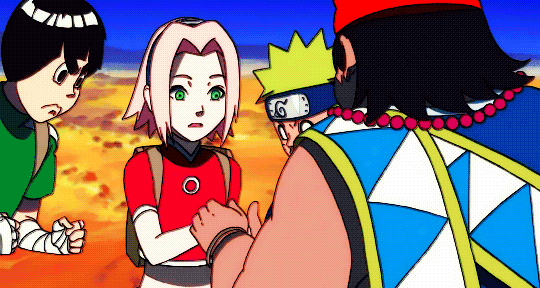
Also this:

And Rock Lee's fight at the end was one of my favorite fights in the entire series.

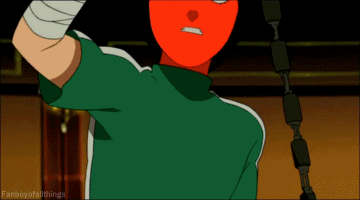
I was legit screaming the whole time.
11/10 best Naruto movie
353 notes
·
View notes
Text
And I am marathoning through it right now ^_^ Can't stop laughing my ass off lmaoooo
reflecting on Naruto today and remembered that I love rock Lee. Proceeded to wish that he had his own rock Lee spin off and I then I remembered that that is, in fact, a real thing.
17 notes
·
View notes

